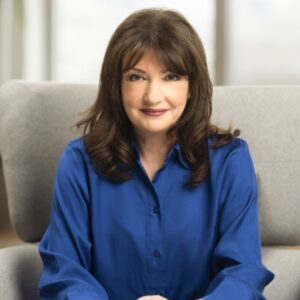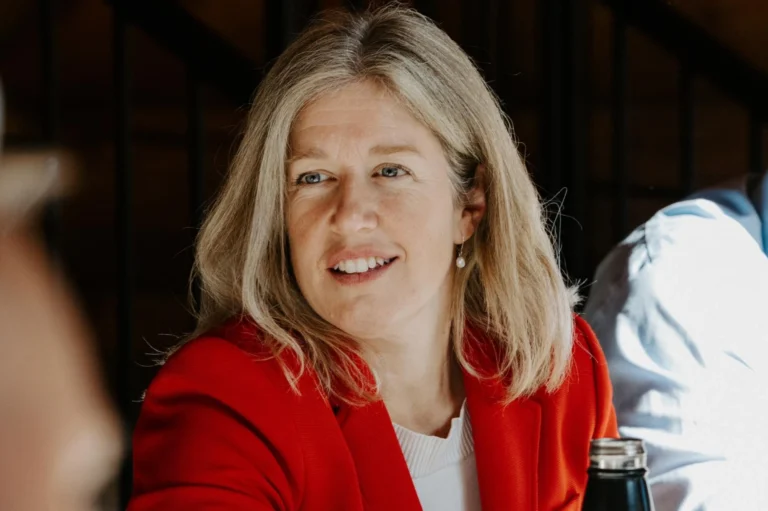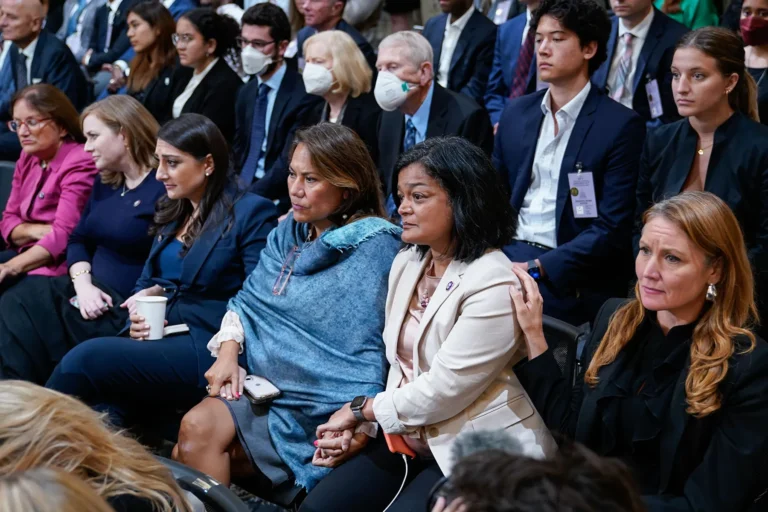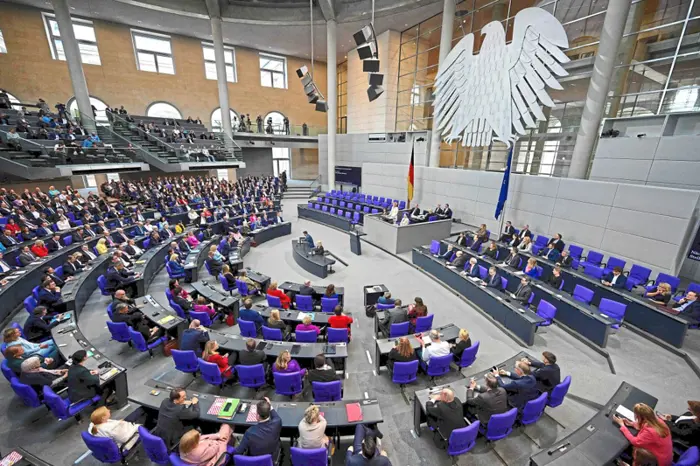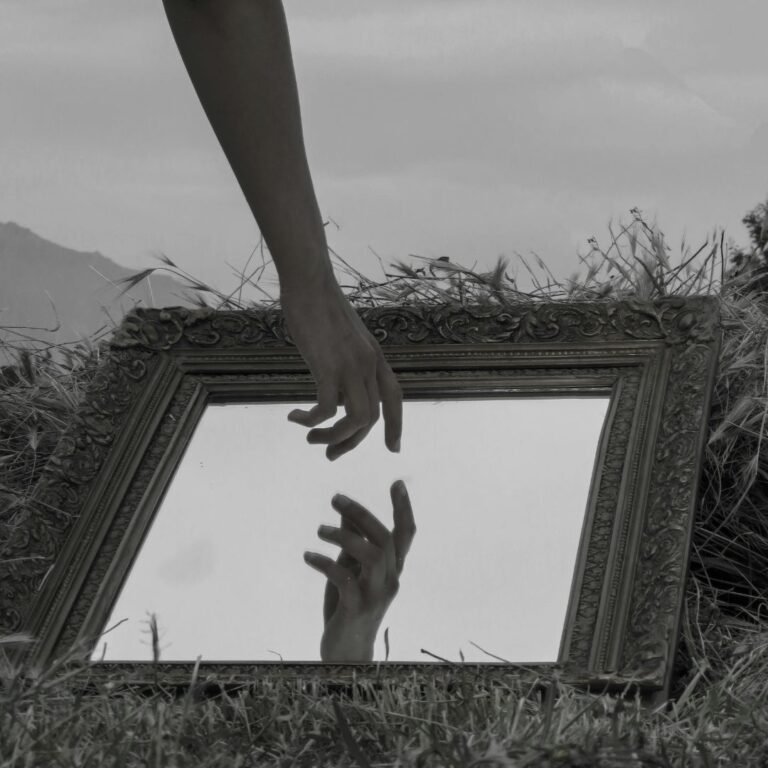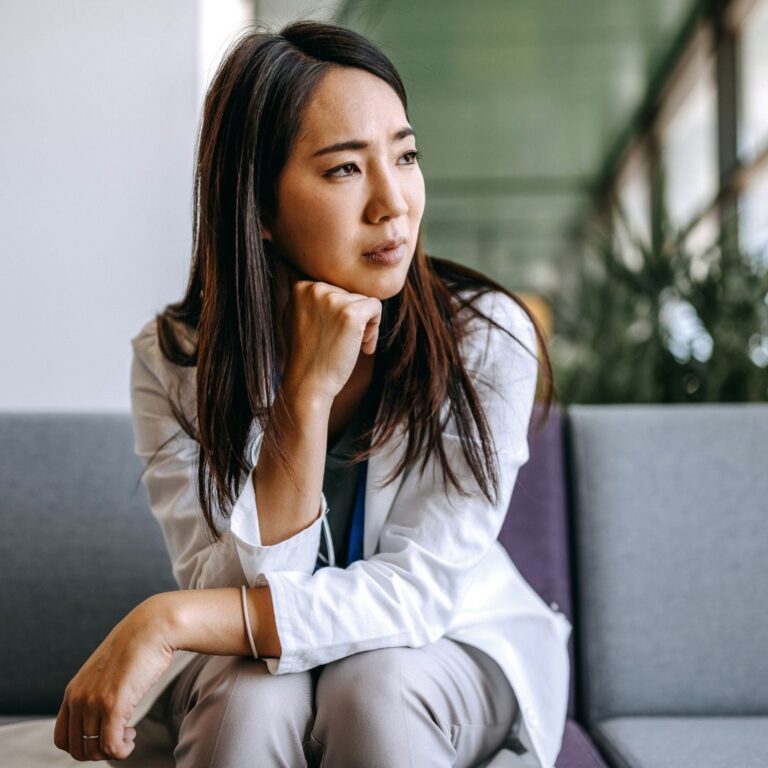Pamela Palmater — an award-winning Mi’kmaw lawyer, author, and social justice activist
Dr. Pamela Palmater is an award-winning Mi’kmaw lawyer, author, and social justice activist from Eel River Bar First Nation who has worked to advance native education, sovereignty, and nation-building for the past 25 years.
Pam is Chair of Indigenous Governance at what is now known as Toronto Metropolitan University. She’s also a respected podcast host and blogger, and her latest book, Warrior Life: Indigenous Resistance and Resurgence, has just been published. In this episode, she talks to Jen and Catherine about the importance of her family in fuelling her activism, the systemic racism she has battled her entire life, and the real hope she feels for the future.
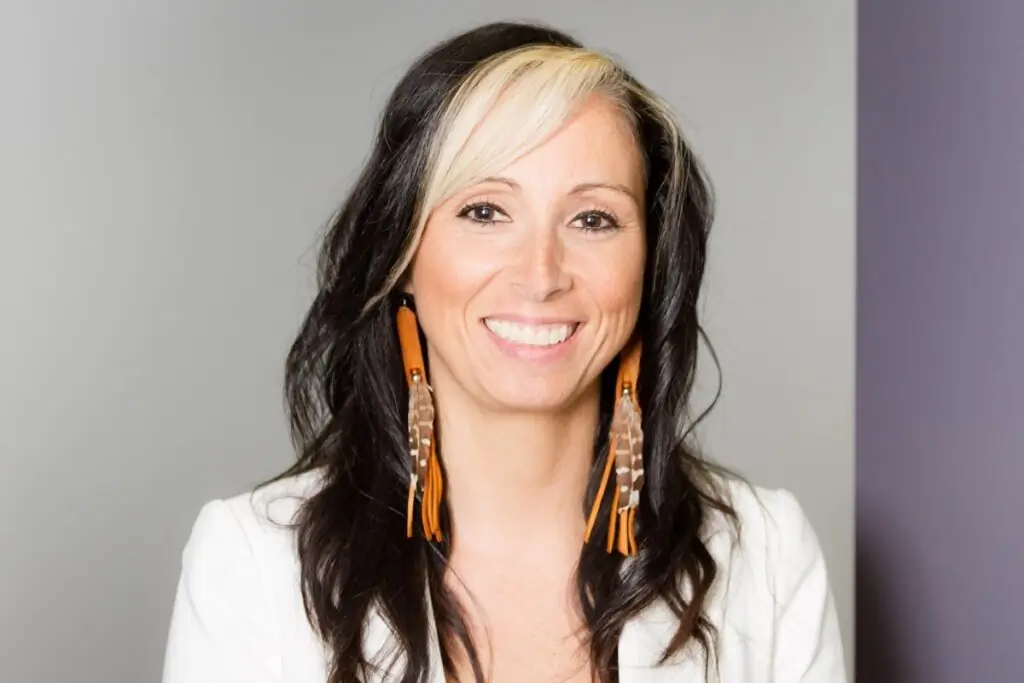
Becoming a young advocate for Indigenous rights
Jennifer Stewart: From what we’ve read, you were a pretty shy kid. And now you have a strong reputation as an outspoken advocate for Indigenous rights. What changed along the way?
Pam Palmater: It wasn’t just when I was a kid; it was right through university. It was painful. I couldn’t speak without shaking. I avoided courses that had any kind of public presentation. It was a combination of my family including me in all the political advocacy they did, forcing me to volunteer on committees and youth groups where I would have to have a speaking role. It still bothers me — I always get nervous before public speaking, but I get so into what I’m talking about because I care so deeply about everything impacting Indigenous peoples that I forget to be nervous.
Catherine Clark: What made you take a stand on the singing of O Canada? Can you tell us that story?
Pam Palmater: When I was small, about when I was in grade 2, the teacher was teaching the history of Canada and said that a long time ago, Native people used to live here, but they don’t exist anymore. And treaties weren’t agreements, they were just these metaphorical documents that talk about a friendship. I thought it was weird, because I always understood from my family that I was Mi’kmaw, which made me Indigenous.
So, I went home and told my family and my brothers were just beside themselves. And so my brother, Nelson, said, “That’s it. I’m taking care of this.” And the next day, when we walked to school, he went into the classroom and in front of all the kids told the teacher, “How dare you say that Native people don’t exist anymore. We’re standing right in front of you. And how dare you say the treaties have no application.
These are legal documents that were signed; they’re sacred. They’re legally binding. And I’ll have you know that my sister will not be standing for O Canada until Canada gives us our land back and starts respecting our treaties.” The teacher didn’t say anything. She just stood there in awe, and all the kids were standing there in awe. I didn’t understand what the significance was because I was so young, but I knew that because my brother was so upset this was a significant moment and I needed to be part of it and some day I would understand.
Catherine Clark: Did you continue to sit down for the anthem? And did she eventually say something to you or did your peers?
Pam Palmater: My teacher never did. So I didn’t stand up for O Canada, but the other students made fun of me. Once the attention was really drawn to the fact that Native people are still alive, and we have treaties, and we want our land back, well, then there was a lot of racism and taunting so it kind of made the whole shy thing a little bit worse.
But that was another learning phase because then I realized it’s not just about the erasure of Native peoples, it’s also about this deep-seated racism. Where would these kids get these ideas? They could only get it in school or from their parents. There were times I would tell my siblings, “I kind of wish I wasn’t Native and then perhaps people wouldn’t hate me.” And then they would explain things, so I got my first education from my brothers and sisters.
The importance of traditional values
Catherine Clark: Is it true that you were the first of your siblings to go to university?
Pam Palmater: Yes, I have eight sisters and four brothers; one passed away when he was young. They had a tough time. They were almost another generation older than me and it was even more difficult for them because of the racism and hatred they received at school. Many of them didn’t finish high school. It wasn’t until later that my sister, Patsy, when she was 50-something decided to get her university degree. They were denied so many opportunities because of systemic racism and societal racism and the constant messages that we don’t belong there.
Catherine Clark: You were less keen about university yourself?
Pam Palmater: By the time I was in my teenage years, I was thoroughly infected with passion and commitment and wanting to defend our Native rights and our sovereignty. To me, school would be a waste of time. Why would I want to learn more math, English, and science when I needed to be on the ground and at negotiating tables, defending our rights?
My family told me all of those issues would still be there when I finished university, but I didn’t want to waste a single ounce not fully committed to our people. They pointed out that it is a commitment, that I was getting the skills and training to be able to dismantle it later, so that was how they convinced me to do degree after degree and spend 16 years in university.
Jennifer Stewart: What would you tell the kids, especially Indigenous kids, who might feel like you did about getting a university education?
Pam Palmater: I tell them that their first and most important education is the traditional one they get from their families, and their communities, and their culture; that is what will ground them in whatever they decide to do. That’s how you survive things like law school, where it’s very colonial and anti-First Nation and doesn’t include Indigenous laws. How do you survive that unless you have a firm grounding? And then I would tell them not to worry about where you’re going to go next; focus on the traditional education you get from your family and community first, which will ground you and empower you going forward.
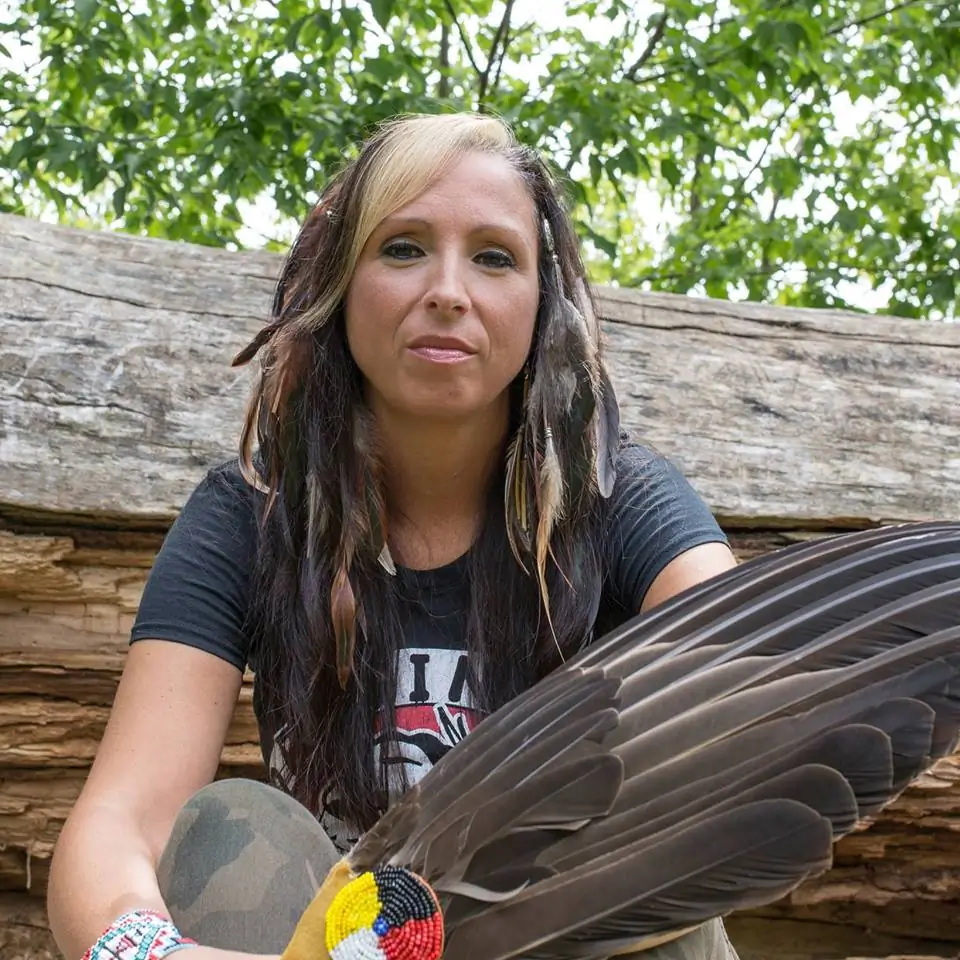
Channelling emotions into action
Catherine Clark: How do you keep moving forward when it’s just got to be so exhausting, at some points, to keep having the same fights?
Pam Palmater: Different elders from different places in what’s now Canada and the U.S. have told me, “Don’t deny yourself any of these feelings because if we can’t feel anger, sadness, frustration, despair, and compassion for our own people, we know it’s not going to come from anywhere else.” So we must show our people we care deeply, and there’s no bad emotion. Several elders explained to me that all of these emotions are just different forms of energy, and in fact although anger gets a very bad rap, anger is very powerful, it comes with adrenaline and heightened focus and enthusiasm. It’s just about where you direct it. I try to channel that energy so it doesn’t get trapped inside and wear you down.
How I experience racism today is much different than when I was a kid. Now, I have more of a shell and it just kind of rolls off. That ignorance, racism, misunderstanding, hatred, self-interest, or greed, that’s not about me, that’s about the person doing it.
Jennifer Stewart: What kind of power or momentum or inspiration have you drawn from being a single mother?
Pam Palmater: Being a single mother changed everything in all the positive ways. Yes, it’s difficult being a single mother and not having a partner to help, and going through school at the same time and working. But it is like a very powerful emotion: you’re very focused, and it’s fulfilling.
One of the most important ways that we can engage in Native resistance and Native resurgence and decolonization and the celebration of who we are as people is having our children and raising our children to be strong and happy and healthy and proud of who they are and little warriors from the time that they’re small. So, I put all my focus, love, and energy into that.
It was very fulfilling to see my children challenge their teachers without asking me to go to school to do it. They said, “We can handle it,” and they could. Now, that’s progress. They didn’t need me to fight their battle, they could do it on their own.
Catherine Clark: You ran to be a National Chief for the Assembly of First Nations and you came second. What was it like for you to be a part of that? What lessons did you learn and would you do it again?
Pam Palmater: There was a lot of good that came of it. And, of course, there’s a lot of bad, because keep in mind we’re a colonized people and we’ve had centuries of racism, sexism, and being taught that we’re not good enough. All of that is spread throughout our communities and it manifests in different ways.
It was a difficult process in some respects, but it was ultimately really good because it gave me an opportunity to meet with chiefs and councillors but also the grassroots people on the ground. I tried to make sure I was hearing people’s issues and having conversations about the ways in which we can resist and defend our rights and assert our sovereignty.
It was an opportunity to start planting the seeds for what would eventually become Idle No More or Wet’suwet’en Strong or any of the resistance actions you see on the ground. I’m thankful for those connections, and they’ve been long-lasting.
Would I do it again? No. At least not at this moment because I was only running for the AFN because we were in such a bad way. The Harper government had such control over First Nations, they were running roughshod over our rights and cutting funding, that I didn’t know what else to do. I developed many long-standing relationships with First Nation leaders, that I continue to work with today, and grassroots people with whom I continue to work. So, ultimately, it was positive.
Advice for Indigenous women and youth
Jennifer Stewart: Many women feel more inclined to stand up for themselves and make their voices heard when they see injustice in the world or their personal lives. What advice do you have for them, Pam?
Pam Palmater: My advice, especially in an Indigenous context, is to remember our traditional roles. So traditionally, as Native women, we were not just the life-givers and caring of children, but we were also political negotiators. We were translators. We were leaders ourselves. We were decision-makers; we were the ones who engaged in, you know, treaty negotiations and Confederacy’s with other Native groups.
We’ve always had powerful positions; it varies from nation to nation but in some the women took the lead role. Part of decolonization and resurgence is bringing that back in a way that’s safe for people, because as you know Indigenous women and girls suffer extremely disproportionate rates of violence.
For non-Indigenous women, they need to go with their gut and speak out. It can be a lonely opinion, but that doesn’t mean it’s the wrong opinion. It could mean that you’re planting a seed that gets picked up three generations from now and will inspire a young generation to act in a different way. We can’t assume that because we don’t see instantaneous response to the things we say or that we advocate for, that it’s not working. Oftentimes it takes generations for these seeds to bloom.
(Note: This transcript has been edited for length and clarity.)


